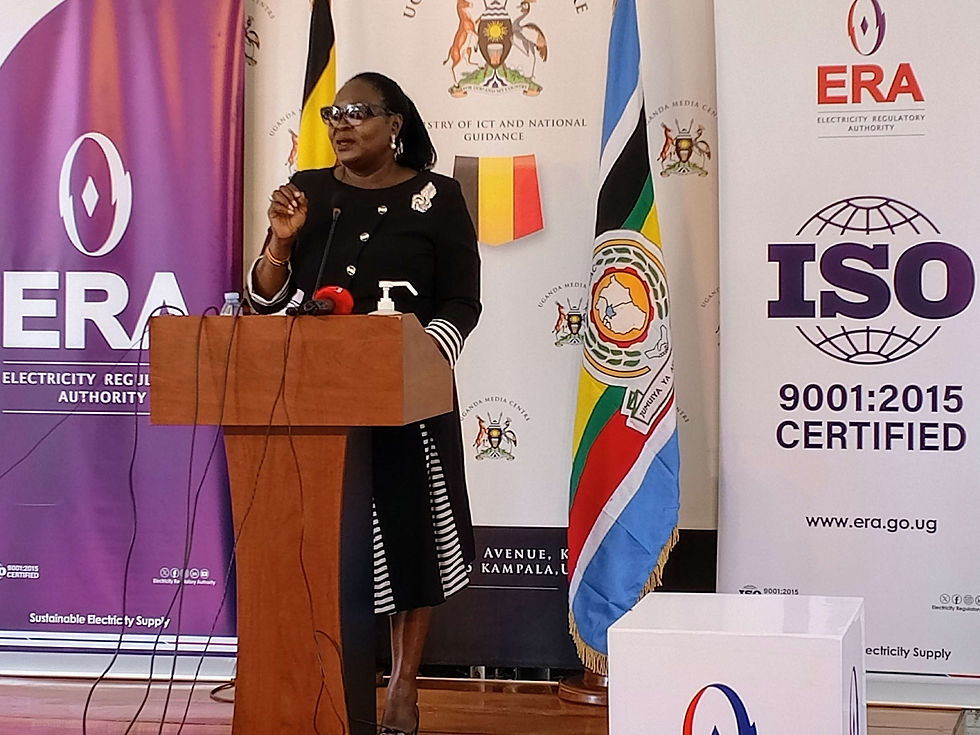Ministry of Energy and Mineral Development's Achievements in 2024 and Plans for 2025
- alphanews

- Jan 2, 2025
- 4 min read
By John Kusolo
On the 2nd of January 2025, Hon. Dr. Canon Ruth Nankabirwa Ssentamu, the Minister for Energy and Mineral Development, addressed the media at Uganda Media Centre, presenting an overview of the Ministry’s significant achievements in 2024 and unveiling its ambitious plans for 2025. This briefing underscored Uganda's growing energy sector and mineral development, highlighting key milestones, the current challenges, and future strategies for ensuring sustainable socio-economic growth.

Minister Nankabirwa began her address by acknowledging the continued support from President Yoweri Museveni, Parliament, technical teams, and various stakeholders in advancing Uganda's energy and mineral sectors. With a focus on the core mandate of the Ministry — the rational and sustainable exploitation of energy and mineral resources — she outlined the strategic initiatives aimed at driving economic transformation, creating jobs, and improving the quality of life for Ugandans.





Comments